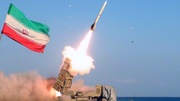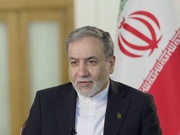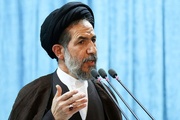Imam Mousa Sadr - an Iranian-Lebanese religious philosopher - and two companions departed for Libya to meet with officials from Qaddafi's government in August 1978. They were never heard from again.
Falahat-Pisheh said Majlis has been seriously pursuing the Sadr case over these years and during a meeting at the Majlis security committee in which 10 Iranian envoys in foreign countries attended some very important issues regarding the Sadr case were discussed.
Referring to a court proceedings began recently on the Sadr case, he said the important thing to be considered is the time needed to resolve the issue, and the MPs hope they can find a final answer to his fate until the end of the sitting parliament.
He said that if something is worth holding an international court, it is the Sadr issue in which Libya should be held responsible.
He pointed to some ways proposed by the Sadr committee in the previous parliament that included filing a complaint in international courts, supporting the recent Lebanon’s judicial ruling, setting up committees for gathering information from foreign intelligence and security organizations by the Iranian Intelligence Ministry.
Sadr was born on the 15th of May 1928 in Qom. He moved to Tehran where he got a degree in Islamic jurisprudence in 1956. He went back to Qom where he started to give religious lectures in the various religious institutes of the city.
In 1960, he went to Lebanon to hold the position of the Islamic Shiite religious leader in the southern city of Tyre following the death of Sayyed Abdelhussein Sharafeddine. He began to be interested, in addition to the religious field, in the social and living conditions of the Islamic Shiite sect. In 1969 the Higher Islamic Shiite Council was founded and Sadr was elected as its president for a duration of 6 years, and he became to be known as Imam.
He founded many social institutions, vocational schools, health clinics and illiteracy obliteration centers. His activity gains an important national dimension as he warned of the dangers of Israeli aggressions against South Lebanon - whose majority happens to be Islamic Shiites. However, as the Imam took care that his struggle should not acquire a restricted sectarian outlook, he established in 1971 a committee that included all the Southern Lebanese spiritual leaders (both Muslim and Christian) to follow-up the political and social activities.
On the 18th of March 1974, and following a series of demonstrations he led to protest against the government's negligence of the rural areas, the Imam founded the "Movement of the Deprived" that adopted the slogan of "continuous struggle until there are no deprived people left in Lebanon." During the civil war he founded the Amal Movement the "Brigades of the Lebanese Resistance", the military wing of the movement of the Deprived" which fought alongside the Lebanese National Movement and the Palestinian Resistance against the projects of partition and settling the Palestinians in Lebanon.
Imam as-Sadr was distinguished among all of his contemporary spiritual and political leaders for his openness especially towards Christians. He co-founded the Social Movement with the Catholic archbishop Grigoire Haddad (1960), participated in the Islamic-Christian dialogue in 1962, and lectured in a Capuchin Christian church during the Easter fast (1964). He mastered many languages and was a prominent intellectual. Imam as-Sadr played an all-important role in the Lebanese political life. Towards the end of August 1978 he mysteriously disappeared during a visit to Libya.
AA/PA
END
MNA























Your Comment